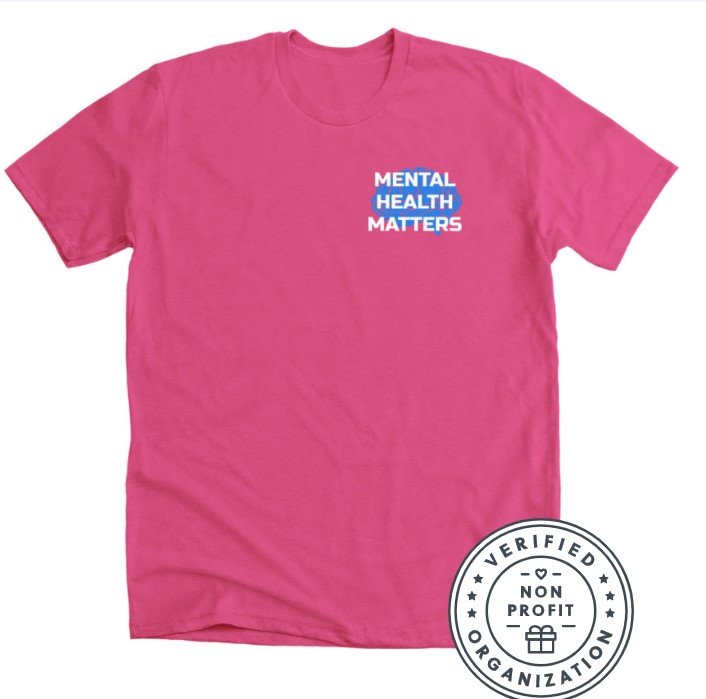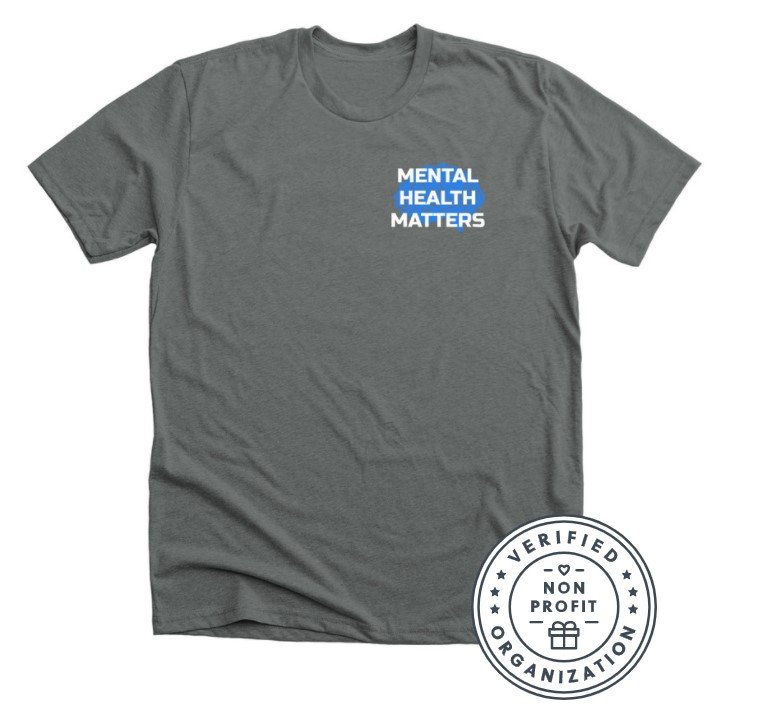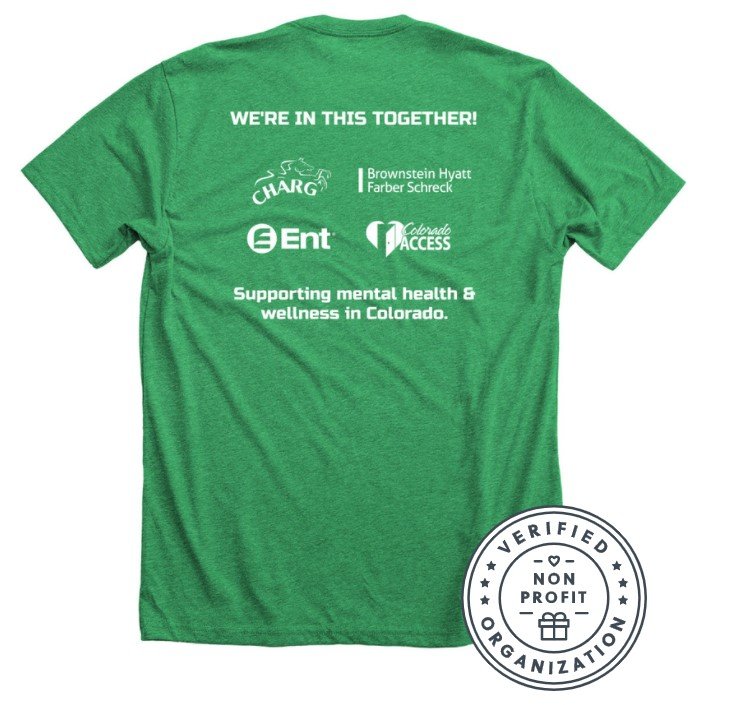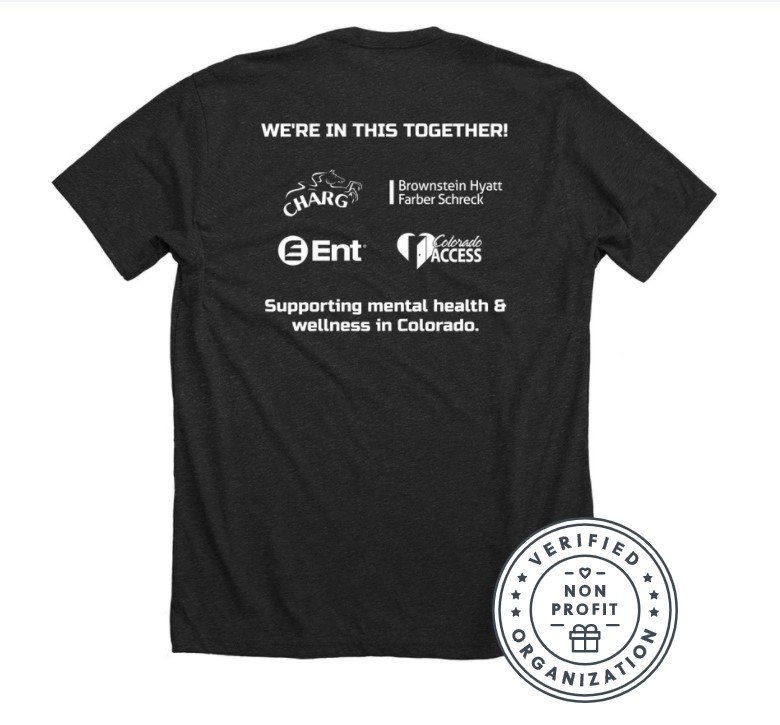May is Mental Health Awareness Month
Most people believe that mental health conditions are rare and “happen to someone else." In fact, mental health conditions are common and widespread. An estimated 44 million Americans suffer from some form of mental disorder in a given year.
If you think you or someone you know may have a mental or emotional problem, it is important to remember there is hope and help.
We’re sharing info from Mental Health America & National Alliance on Mental Illness in honor of Mental Health Awareness Month.
Mental health refers to our emotional and social well-being and impacts how we think, feel, and behave. It plays a role in connecting with others, making decisions, handling stress, and many other aspects of daily life. Everyone has mental health, and it deserves your attention just as much as your physical health does.
Quick Facts and Statistics about Mental Health
While 1 in 5 people will experience a mental illness during their lifetime, everyone faces challenges in life that can impact their mental health.
46 percent of Americans will meet the criteria for a diagnosable mental health condition sometime in their life, and half of those people will develop conditions by the age of 14.
The average delay between symptom onset and treatment is 11 years, meaning a lot of people spend months or years facing mental health challenges before getting a diagnosis. It is never too early to seek treatment for your mental health.
Number of US Adults with Mental Illness: 50 million
What is a mental health condition?
A mental health condition, or mental illness, is a condition that affects a person's thinking, feeling, behavior or mood. These conditions deeply impact day-to-day living and may also affect the ability to relate to others. If you have — or think you might have — a mental illness, the first thing you must know is that you are not alone.
A mental health condition isn’t the result of one event. Research suggests multiple, linking causes. Genetics, environment and lifestyle influence whether someone develops a mental health condition. A stressful job or home life makes some people more susceptible, as do traumatic life events. Biochemical processes and circuits and basic brain structure may play a role, too.
None of this means that you’re broken or that you, or your family, did something “wrong.” Mental illness is no one’s fault. And for many people, recovery — including meaningful roles in social life, school and work — is possible, especially when you start treatment early and play a strong role in your own recovery process.
Who needs to look after their mental health?
Everyone! Mental health is important for all of us. Taking care of yourself is critical to prevent your mental health from worsening – factors like nutrition and gut health, stress, sleep, relationships, trauma, and more can contribute to poor mental health.
A mental health screening is a quick, free, and confidential way to determine if you might be experiencing signs of a mental health condition.
Visit mhascreening.org to get started.
Is poor mental health the same thing as having a mental health condition?
No. We all have tough days and weeks, and struggling with your mental health doesn't automatically mean you have a mental health condition. To be diagnosed, the changes in your thinking and emotions must be seriously hurting your ability to do the things you want to do; and sticking around longer than they should – weeks or months, depending on the condition.
A Few Terms to Know
SYMPTOMS: physical or mental features that indicate the potential existence of a concern, condition, or diagnosis
LIVED EXPERIENCE: first-hand, personal experience dealing with a mental health or substance use challenge
STRESS: a feeling of emotional or physical tension in response to being overwhelmed or unable to cope with mental or emotional pressure
TRAUMA: an emotional response to a disturbing, scary, or shocking experience that overwhelms an individual’s ability to cope
COPING SKILLS: strategies to help you deal with difficult situations and lessen unpleasant emotions, thoughts, or behaviors
Recognizing When You Need Help
Think about your physical health. We all have days where we feel a bit sore, have a headache, or are extra tired. That doesn’t necessarily mean you’re sick. You’re sick when something suddenly and significantly changes for the worse or prevents you from functioning properly.
Mental health is similar – the occasional bad day is to be expected, but when things that used to be easy become a lot more difficult, something’s going on. Instead of focusing on physical symptoms, you’ll want to look at your thoughts, feelings, and behaviors.
Get Help or Refer Someone to CHARG Resource Center
If you live in the Denver, Colorado area and would like to learn more about the mental health services we provide at our Heartland Clinic, you can complete this online form. We offer outpatient services for adults over the age of 18, and we accept Colorado Medicaid (Health First Colorado) for Denver, Adams, Arapahoe, Douglas, and Elbert counties. You can also refer someone.
Need Help Now?
Seeking help is a strength—not a weakness. Contact Rocky Mountain Crisis Partners, Colorado’s free 24/7 resource for in-the-moment Crisis Care. Call the crisis line at 1-844-493-8255 or text “TALK” to 38255 to speak to a trained professional.
Visit a Walk-In Center
Colorado Crisis Services operates six walk-in crisis centers across metro Denver. These centers are open 24 hours a day/7 days a week, and offer confidential, in-person crisis support, information and referrals to anyone in need. Learn more at Colorado Crisis Services.
Some Ways to Cope Day-to-Day
Accept your feelings
Despite the different symptoms and types of mental illnesses, many families who have a loved one with mental illness, share similar experiences. You may find yourself denying the warning signs, worrying what other people will think because of the stigma, or wondering what caused your loved one to become ill. Accept that these feelings are normal and common among families going through similar situations. Find out all you can about your loved one’s condition by reading and talking with mental health professionals. Share what you have learned with others.
Handling unusual behavior
The outward signs of a mental illness are often behavioral. A person may be extremely quiet or withdrawn. Conversely, they may burst into tears, have great anxiety or have outbursts of anger. Even after treatment has started, some individuals with a mental illness can exhibit anti-social behaviors. When in public, these behaviors can be disruptive and difficult to accept. The next time you and your family member visit your doctor or mental health professional, discuss these behaviors and develop a strategy for coping. The individual's behavior may be as dismaying to them as it is to you. Ask questions, listen with an open mind and be there to support them.
Establishing a support network
Whenever possible, seek support from friends and family members. If you feel you cannot discuss your situation with friends or other family members, find a self-help or support group. These groups provide an opportunity for you to talk to other people who are experiencing the same type of problems. They can listen and offer valuable advice.
Seeking counseling
Therapy can be beneficial for both the individual with mental illness and other family members. A mental health professional can suggest ways to cope and better understand your loved one’s illness. When looking for a therapist, be patient and talk to a few professionals so you can choose the person that is right for you and your family. It may take time until you are comfortable, but in the long run you will be glad you sought help.
Reduce Stigma & Support Our Cause
Every “Mental Health Matters” t-shirt purchase you make helps fund high-impact, transformational mental health services and programs in Denver, Colorado. You are helping support our members getting the resources they need, when they need them. We have a few color options available.
Thank you to our Empowerment Sponsors last year -- Brownstein Hyatt Farber Schreck, Colorado Access, and Ent Credit Union -- for supporting mental health and wellness in Colorado!
Resources
Mental Health America. Find more resources online at https://mhanational.org.
National Alliance on Mental Illness. Find more resources online at www.nami.org.







